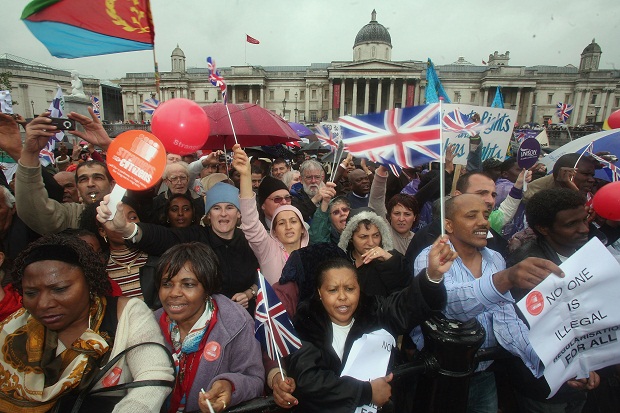Formulating policy on the back of what you believe human beings ought to be like rather than what they tend to be like can have serious consequences. Mass immigration is a case in point.
I have tended to accept the proposition that immigration (the more the merrier) is an inherent good on the grounds that the economic case for it is strong. After all, migrants tend to put more into the pot than they take out and a rapidly ageing population means we require a young and dynamic workforce to pay for pensions further down the road. It is the economic case that explains why, as well as the bleeding heart left, the CBI and the Economist are enthralled at the prospect of greater mass migration to the UK.
Economics should not be determinative of policy, however. The paradox of the liberal love affair with immigration is that the progressive’s disdain for borders and the fetishisation of dry economic data risks undermining one of the very aspects of society he professes to cherish: the welfare state. For there is increasing evidence to suggest that declining support for social security among people in Britain may not simply be down to ‘Thatcherism’, but also to unwillingness on the part of the British people to see their hard earned money spent on people from overseas.
As anyone who has observed the media’s varying coverage of natural disasters will know, as humans we empathise more with people who are superficially like us than we do with people whose lifestyles we struggle to understand. Unsurprisingly, a similar rule seems to apply to those we wish to spend money on at home.
A study last year by the university of Manchester found that white British respondents were consistently less willing to provide welfare assistance when the recipient was non-white or foreign born. A 2007 study by Robert Putnam, an American liberal, also found that greater diversity across local areas of Canada, the United States, Australia, Sweden and Britain was associated with lower social trust and lower investment in public goods.
As David Goodhart has written:
‘All people are equal but they are not all equal to us. Most people in Britain today accept the idea of human equality, but remain moral particularists and moderate nationalists.’
Recognition of the fact is not necessarily to endorse it. It is, however, to accept that there may be a social democratic cost attached to mass immigration that cannot simply be wished away by utopian promulgations that reek of the seminar.
As 19thcentury French philosopher Pierre-Joseph Proudhon put it: “If the entire world is my brother, then I have no brother.”





Comments